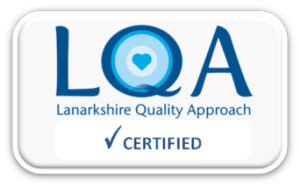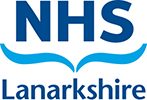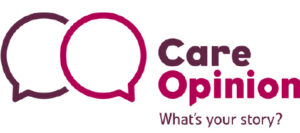Weaning
Information for patients
NHS Lanarkshire Dietetic Department
PIL.WEANIG.16_07658.L
What is weaning?
Weaning means introducing a variety of foods gradually. It is sometimes called introducing solids, or complementary or mixed feeding. Solid foods are introduced gradually so babies get used to new tastes and textures. By the time they are one year old, most children will be eating chopped or mashed family food.
When should weaning begin?
Breast milk or infant formula milk alone can provide all the nourishment babies need until they are around 6 months old. After 6 months, they will need more nutrients than milk can provide e.g. iron to grow well.
How will I know when my baby is ready to start solid foods?
- sitting with good head control
- reaching out for objects and bringing them up to their mouths
- practicing munching or chewing movements
- showing an interest in food
It is really important that weaning should not begin before 4 months. This is because a younger baby’s kidneys, immune and digestive systems are not developed enough to cope with solid foods.
What kind of foods should be used?
Your baby will learn that foods come in various textures, colours and flavours. Some food will require a spoon, some can be eaten with their hands. Giving the right foods at this time lays the foundation for healthy eating throughout life. Weaning foods are often introduced in stages. Below is a table of the different stages and what foods should be used. The ages are approximate and will depend on when weaning is first started; every baby is different and will develop at his or her own pace depending on how well your baby adapts to feeding. Offer your baby solid foods when they are relaxed and happy. In the beginning, this may be after their normal feeds. There are foods that we should aim to have in our diet everyday. These are starchy foods, fruit and veg, meat, fish, eggs, beans and other non-dairy sources, pasteurised full fat milk and other dairy foods, and fats.
It is important to offer different tastes and textures and to recognise that babies may need to try a new food many times before they accept it. Delaying the introduction of a new taste or texture, especially beyond six to twelve months, may take a baby longer to accept it.
How do I start?
There is no right way to do it. Eating is a fun and sociable event and your baby will soon learn this too. Introducing solids helps your baby learn about family routine. Try not to get caught up with the mess.
| Stage | Age Range | Consistency | Foods |
| Stage 1 |
Around 6 months (26 weeks) No earlier than 4 months/17 weeks |
Smooth pureed foods |
Ideal first foods should be single ingredient such as pureed vegetables (Sweet potato, potato, carrot), baby rice, pureed fruits (apple, banana, pear). Start with small amounts of first foods and gradually increase the amount as your baby gets older. At this stage breast or formula milk is still your baby’s main source of nutrition. |
| Stage 2 | 6-9 months |
Thicker consistency with some lumps; minced or mashed. Soft finger foods can also be introduced at this stage |
Fruit, vegetables, rice, potatoes, meat, poultry, fish (without bones), eggs, yoghurt, custard, cheese, bread and cereals |
| Stage 3 | 9-12 months |
Mashed, chopped, minced consistency; more finger foods |
Fruit, vegetables, rice, potatoes, meat, fish, pulses, eggs, yoghurt, custard, cheese, bread and cereals |
| Stage 4 | 12 months onwards |
Mashed, chopped family foods and a variety of finger foods |
Fruit, vegetables, rice, potatoes, meat, fish. Pulses, eggs, yoghurt, custard, cheese, bread and cereals |
Which foods should be avoided?
Salt
Salt should not be added to foods as it can overload your baby’s kidneys. Therefore, salty foods such as bacon, cheese and some processed foods should be limited. Babies up to 6 months old should have less than 1g salt each day. From 7 months to 1 year old they should have a maximum of 1g of salt a day in their diet.
Sugar
Sugar can encourage a ‘sweet tooth’ and lead to tooth decay when first teeth start to come through. Avoid adding any sugar to foods and drinks that are high in sugar.
Honey
Honey should not be given to children under 1 year.
Food Introduction
It is important to introduce all foods into your infants diet unless advised by a medical professional. With holding foods from your babies diet can lead to the development of allergies. Foods should be introduced slowly in a texture suitable for your baby.
If your child is under the age of 5 avoid foods which may pose a risk of choking such as whole nuts.
Allergies
Babies are more likely to develop allergies if there is a family history. Exclusive breastfeeding is especially recommended for the first 6 months. Good idea to introduce foods that may cause food allergies one at a time, starting with just a small amount after they are 6 months old so you can spot the reaction.
What about drinks?
Breast fed babies do not need any additional drinks, but formula fed babies may need some extra water (cooled boiled water) in hot weather. There is no need for babies to be offered juices, as even juices with natural sugars can cause tooth decay. Drinks should be offered in a cup not a bottle, which can be introduced around 6 months of age.
After six months, babies should be offered regular breast feeds. If they are being formula fed they should be offered 500-600ml of suitable infant formula. Once your child is 1 year old cow’s milk can be offered as an alternative to breastmilk or infant formula, provided they do not have a cow’s milk allergy. Aim to wean from milk via a bottle by 1 year. Babies should be given 10 ug of Vitamin D a day, all year round, unless they are being given 500mls of formula milk or more a day. All parents and caregivers should check if they qualify for free Healthy Start vitamin drops.
Further information and videos about weaning can be found on the NHS Lanarkshire website.
Further information and videos about weaning can be found on the Weaning Recipes section of the NHS Lanarkshire website.
Community Dieticians: 01698 754 800
University Hospital Wishaw: 01698 366188
Pub. date: November 2022
Review date: November 2024
Issue No: 04
Reference: PIL.WEANIG.16_07658.L
22_22861
If you need this information in another language or format, please e-mail:




